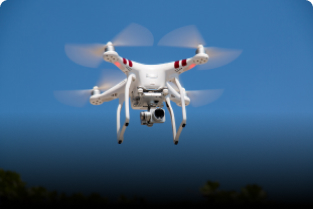Drones are revolutionizing industries — from agriculture and construction to defense and filmmaking. Behind their innovation stands a new breed of specialists: drone engineers. These professionals design, develop, and improve unmanned aerial vehicles (UAVs), combining skills from electronics, software, aeronautics, and robotics. If you’re fascinated by drones and dream of building or programming them, this guide will walk you through the qualifications needed to become a drone engineer.
1. Educational Qualifications
To start a career as a drone engineer, a strong academic background in engineering or technology is essential.
a. Bachelor’s Degree
A Bachelor’s degree in one of the following fields is typically required:
-
Aerospace Engineering
-
Mechanical Engineering
-
Electrical or Electronics Engineering
-
Robotics Engineering
-
Computer Science or Computer Engineering
-
Mechatronics
These programs provide foundational knowledge in aerodynamics, embedded systems, electronics, and programming — all essential for drone development.
b. Master’s Degree (Optional but Advantageous)
A Master’s degree in UAV systems, aerospace, or robotics can give candidates a competitive edge, especially for roles in research and development, defense, or academia.
2. Technical Skills and Certifications
Besides formal education, drone engineers must acquire specific technical skills and certifications:
a. Programming Languages
Familiarity with languages like:
-
C/C++
-
Python
-
MATLAB
-
ROS (Robot Operating System)
These are crucial for drone software development, flight control systems, and AI integration.
b. Hardware and Embedded Systems Knowledge
Understanding sensors, microcontrollers (like Arduino or Raspberry Pi), PCB design, and communication systems (GPS, RF) is vital.
c. CAD and Simulation Tools
Proficiency in tools like:
-
SolidWorks or AutoCAD (for mechanical design)
-
ANSYS or MATLAB Simulink (for simulations)
d. Drone-Specific Certifications
-
Remote Pilot License (as per local regulations): In countries like the U.S. or India, a commercial drone pilot license is required for professional UAV operations.
-
Certified UAV Engineer: Offered by several institutions or private academies.
-
Training from institutes like DJI Academy, or drone-specific training programs recognized by aviation authorities.
3. Soft Skills and Industry Knowledge
Drone engineers must also possess:
-
Problem-solving and analytical thinking
-
Team collaboration
-
Project management skills
-
Familiarity with aviation laws and airspace regulations
Understanding industry-specific applications (e.g., surveying, delivery, surveillance, agriculture) helps tailor engineering efforts to real-world needs.
4. Gaining Practical Experience
Experience often makes the difference in this field:
-
Internships with drone startups or aerospace firms
-
Projects and competitions (e.g., drone design contests, hackathons)
-
DIY drone building for hands-on learning
-
Research papers or capstone projects in UAV technology
5. Optional Courses and Online Learning Platforms
You can enhance your qualifications through online platforms offering drone and UAV-focused courses:
-
Coursera – “Introduction to Engineering: UAVs”
-
edX – “Drone Programming and Flight Control”
-
Udemy – “Build Your Own Quadcopter Drone”
-
IIT/NPTEL – Courses on Aerospace or Mechatronics Engineering
Conclusion
Becoming a drone engineer requires a blend of academic knowledge, technical expertise, hands-on experience, and relevant certifications. As drones become more integral to modern life, opportunities for skilled drone engineers are soaring.

